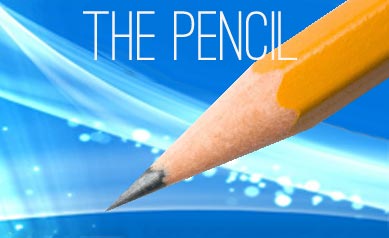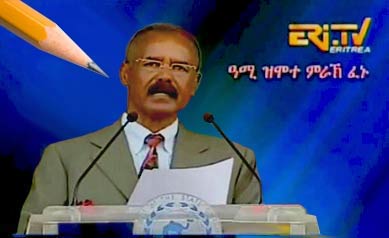EU’s NGOs & Their Viceroys
 On October 29th, Gedab News reported about the November 9-10 conference on aligning EU and US policies towards Eritrea. We entitled the piece “Engagement and Exclusion: US, EU & Eritrea.” The piece was almost entirely about the EU and US and almost in passing mentioned the Eritreans who will be attending. Some thought that the “engagement and exclusion” was in reference to the lack of diversity of the Eritreans attending. We assured them, to the extent that we could, that awate.com has plenty of opportunity to provide its opinion and tries to make the language it uses for its news as neutral as possible. This is why we refer to Isaias Afwerki as President in Gedab News and as Dictator in our opinion piece. This is our opinion about the European Union and the Eritreans attending the conference.
On October 29th, Gedab News reported about the November 9-10 conference on aligning EU and US policies towards Eritrea. We entitled the piece “Engagement and Exclusion: US, EU & Eritrea.” The piece was almost entirely about the EU and US and almost in passing mentioned the Eritreans who will be attending. Some thought that the “engagement and exclusion” was in reference to the lack of diversity of the Eritreans attending. We assured them, to the extent that we could, that awate.com has plenty of opportunity to provide its opinion and tries to make the language it uses for its news as neutral as possible. This is why we refer to Isaias Afwerki as President in Gedab News and as Dictator in our opinion piece. This is our opinion about the European Union and the Eritreans attending the conference.
There are many issues that the European Union can be proud of: that it is the largest contributor of aid to developing countries; that it has the freest trade policy; that it has a humanitarian asylum policy; that it has linked democratization to development aid and that it is a practitioner of “soft power”—diplomacy—as the primary means of resolving conflicts. But it has one bad habit, a remnant from the days when Europe was a synonym for colonialism: that of selecting viceroys to run the affairs of the Third World. It doesn’t do this through its governments—as that would be too paternalistic and condescending. Rather, it subcontracts out this service to its new missionaries—the European NGOs and bureaucracies—whose primary objective is not to bring about results, but to discuss how to bring abut results. They are engaged to engagement: the means is the end.
When it comes to Eritrea, there are two recent examples that can be given in this regard: (1) the EU Commissioner’s “engagement” with Eritrea’s First Viceroy, Isaias Afwerki; (2) the EU (or its neo-missionaries) recent engagement with a new group of viceroys to discuss “alternative” means to democratizing Eritrea.
The Louis Michel “Engagement”
In May 4, 2007, EU Commissioner Louis Michel told the world that he was “very, very honored” to receive in Brussels a man arguably responsible for more deaths, torture, exile and misery than any other African holding power: Eritrea’s Isaias Afwerki. Last summer, thousands of Eritreans implored Mr Michel to re-consider his embrace of Eritrea’s tyrant (and longtime European viceroy) by reminding him that the issue of tying aid and trade to human rights and democratization was a settled issue, as had been enshrined in the Cotonou Agreement, and that making concessions and appeasing dictators only empowers them and demoralizes their victims.
Examples and precedents that this would fail were in abundance. In August 2005, the Asmara regime had kicked out the United Nations peacekeepers and confiscated about 120 vehicles belonging to it and the NGOs. In May and again in November 2006, it had expelled all—about a dozen, mostly European—NGOS. The EU’s ambassador to Eritrea, Geert Heikens, complained that the Asmara regime sells food aid and that, when he complains to the appropriate authorities, they never respond to his pleas.
Mr. Michel persisted and offered € 122 million in development aid from the European Development Fund.
A year later, Mr. Michel, and the EU (whose member states, incidentally, had unanimously supported his decision) have nothing to show for his gamble. Awate.com has exclusively obtained a copy of the letter that then-Commissioner Michel sent the still-dictator Isaias. It is an embarrassment for Mr. Michel and the Commission for which he speaks that he had to not only prostrate at the feet of the dictator, but he was, with a combination of winks and nods, telling him that Europe was not asking for substantive change in the behavior of the tyrant, but only symbolic signals that would mollify European public opinion. The EU’s appeal to the dictator was not for the benefit of the long-suffering Eritreans but to quiet down Europeans. Please read the entire letter and judge for yourself.
The Dr. Mirjam Van Reisen “Engagement”
At the time the EU was rationalizing its decision to grant the regime € 122 million in development aid, it had prepared a Q and A, which included the following:
Q: Does the EU only conduct a dialogue with the Eritrean Government?
A: In order to have a better understanding of the situation in Eritrea, the Commission also values the dialogue it has with all interested parties including NGOs and civil society both in and outside Eritrea. Taking into account the organization of Eritrean civil society, this is a process which is still being developed. [emphasis added]
The conference which is entitled “Joining Up EU and US Policy Towards Eritrea and the Horn for the Promotion of Democracy and Human Rights”, and now scheduled to be held in Brussels on November 9th and 10th should be seen within this context. It is a seminar organized by a lobbyist, Dr. Mirjam Van Reisen, who works for a European NGO, Europe External Policy Advisors (EEPA), for the purpose of mollifying European public opinion.
We mean no disrespect to the Eritreans participating at the meeting—most of whom are individuals we hold in high regard—but, regretfully, they are nothing more than props for European NGOS and their Eritrean confederates.
According to the backgrounder information issued by the organizers, the Conference aims to:
- Help create clarity that EU and US policies originate from the same objectives;
- Help clarify purpose and intention of (perceived) differences between EU and US policy;
- Ensure voice for the broad range of Eritrean civil society in the Diaspora in policy discussions, in building alternative approaches towards democracy in Eritrea;
- Ensure that the policy alternatives are understood in their beneficial potential for the Horn region;
- Promote understanding of the destabilizing impact of the interference of the current regime in Eritrea on the Horn region and mobilize for a joint solution of common problems in the Horn region;
- Promote understanding of policy alternatives that aim to further democracy and the promotion of human rights in Eritrea and the Horn region.
The first obvious question is: do the Eritreans attending the conference represent the voice of a “broad range of Eritrean civil society in the Diaspora”? The answer is self-evident: they do not. The plain truth is that the constituencies of the organizations that the Eritreans represent do not exceed more than “500 individuals”, according to one of the leaders of the organizations. So while the European Union gets what it wants—the ability to, sometime in the future, claim that it convened a seminar that included credentialed and respectable Eritreans—it will have done it at considerable expense to Eritrea’s body politic.
Secondly, what policy alternatives is Europe going to consider to “further democracy and human rights”? Who are the new viceroys going to be alternatives to: the original European viceroy, Isaias Afwerki, or the other members of the opposition who have a constituency far in excess of those represented by the ones attending the conference?As a consequence of this seminar, the opposition in the Eritrean Diaspora is likely to be more fractured, more suspicious of one another and, if past examples are an indication, the Eritreans who will have convened will never convene again. At some point, the same movers-and-shakers will appoint new viceroys and the process will go on indefinitely.
We began this editorial by praising the strengths of the EU, and we feel it is apropos that we highlight its weakness. The EU is structured like a richer version of the UN. Its requirement that major decisions be based on unanimous agreement; its myriad of organizations; its reluctance to impose any meaningful punitive measures—Zimbabwe and Myanmar are the only two countries it has ever sanctioned—and its eagerness to pursue a policy of engagement and appeasement render it completely paralyzed.
Its addiction of engaging for engagement sake will only prolong the suffering of the Eritrean people.
The Bottom Line
The EU’s policy towards Eritrea not only does not advance the interest of freedom, justice, and equality-loving Eritreans; it doesn’t even advance the values of the EU which considers human rights “universal and indivisible.” As was made clear by Michel’s letter to Isaias Afwerki, the European Union is more interested in cosmetic and symbolic change (“signals”) engineered by the dictator himself and not fundamental transformation that brings about real democracy and human rights in Eritrea.
The November conference is designed for the domestic consumption of European public opinion: to enable the EU to say that it is engaged in dialogue not just with the Eritrean government but the Eritrean civil society. Many of the Eritreans attending the seminar are on the record for their belief in “dialoguing” with the Eritrean tyrant—so there might even be a convergence of ideas.
But supporters and detractors of this seminar must know that the Eritreans attending the seminar are not from a “broad range of Eritrean civil society” and, therefore, whatever declarations they come up with will have no impact on the Eritrean reality. And to the extent there is some bitterness among the uninvited Eritrean civil society and the Eritrean opposition, we hope all involved will use this as yet another learning opportunity that change will not come from Brussels, Belgium but Bet Giorghis, Eritrea. And, once again, it is better to practice diversity instead of preaching it, even when it is hard to do so. Especially when it is hard to do so.



Awate Forum